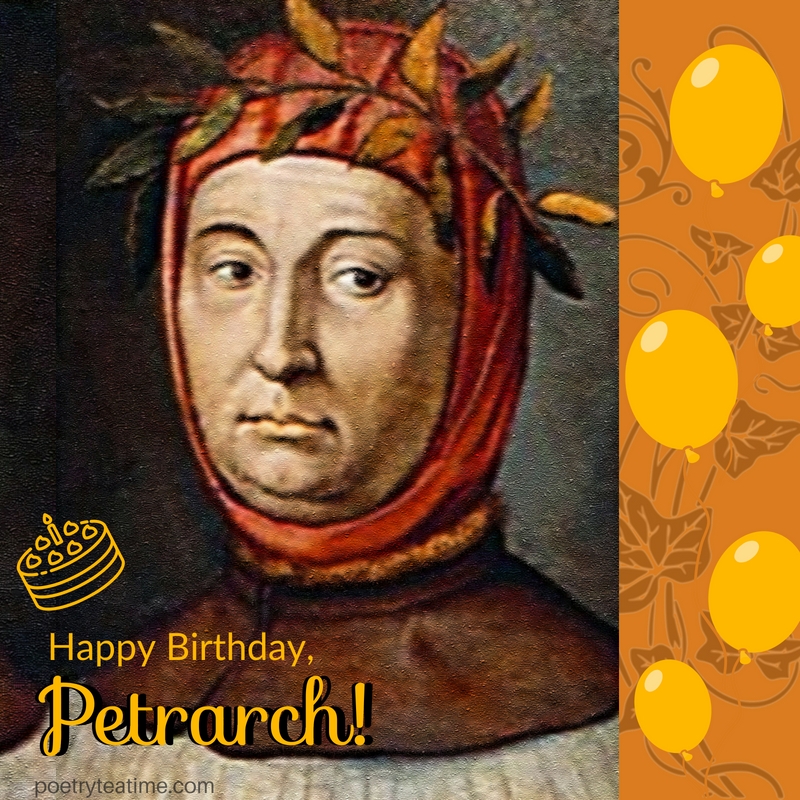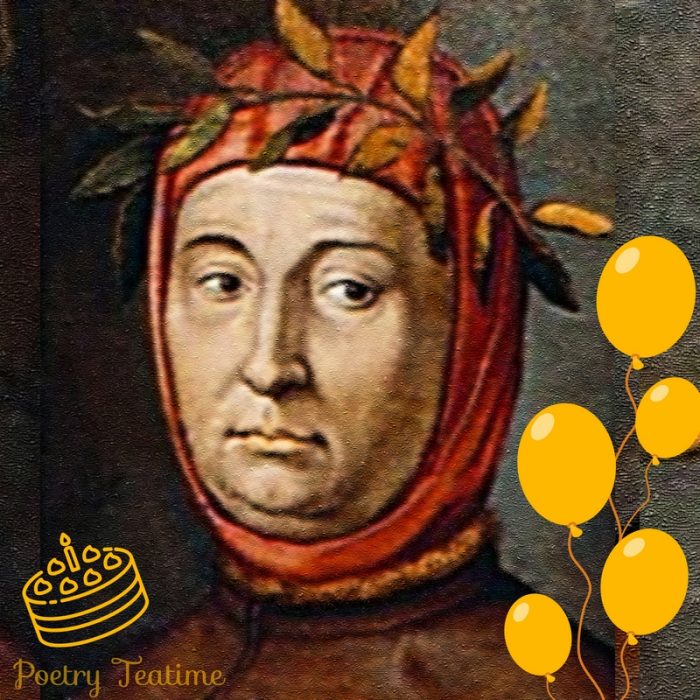July 20th is the birthday of Italian Renaissance poet and scholar Petrarch. Petrarch is credited with beginning the Renaissance with his discovery and publication of Cicero’s letters. His style of writing sonnets was so influential that these poems are now known as “Petrarchan” sonnets. So let’s celebrate Petrarch!
[This post contains Amazon affiliate links. When you click on those links to make purchases,
Poetry Teatime receives compensation at no extra cost to you. Thank you!]
Petrarch, or in Italian, Francesco Petrarca, lived from 1304–1374 C.E. Although Petrarch initially pursued a career in law, he defied his family’s wishes by switching to a study of classics and religion. He then traveled and wrote around Europe, composing many poems about his love for a woman named Laura.
While Petrarch used many forms of poetry, including terza rima and canzoni, he is especially known for writing sonnets. The Italian or Petrarchan sonnet, like all sonnets, is composed of 14 lines. The rhyme scheme for a Petrarchan sonnet is traditionally abbaabba cdecde. These sonnets are divided into an “octave,” or the first eight lines, and the “sestet,” or the last six lines. In a Petrarchan sonnet, the first eight lines typically pose a question or state a problem that the last six lines answer or resolve.
Let’s take a look at a couple of Petrarchan sonnets. See if you can spot the octave and the sestet, and compare any differences you see in what the poet is saying in each part of the poem.
VI
Translated by Thomas Wentworth Higginson (1903)
I once beheld on earth celestial graces
And heavenly beauties scarce to mortals known,
Whose memory yields nor joy nor grief alone,
But all things else in cloud and dreams effaces.
I saw how tears had left their weary traces
Within those eyes that once the sun outshone,
I heard those lips, in low and plaintive moan,
Breathe words to stir the mountains from their places.
Love, wisdom, courage, tenderness, and truth
Made in their mourning strains more high and dear
Than ever wove soft sounds for mortal ear;
And heaven seemed listening in such saddest ruth
The very leaves upon the bough to soothe,
Such sweetness filled the blissful atmosphere.
XII
Translated by Thomas Wentworth Higginson (1903)
Oft by my faithful mirror I am told,
And by my mind outworn and altered brow,
My earthly powers impaired and weakened now,—
“Deceive thyself no more, for thou art old!”
Who strives with Nature’s laws is over-bold,
And Time to his commandment bids us bow.
Like fire that waves have quenched, I calmly vow
In life’s long dream no more my sense to fold.
And while I think, our swift existence flies,
And none can live again earth’s brief career,—
Then in my deepest heart the voice replies
Of one who now has left this mortal sphere,
But walked alone through earthly destinies,
And of all women is to fame most dear.
Where can you find out more about Petrarch and his poetry? Read more about Petrarch here at Poets.org. Check out this list of resources from the Renaissance Society of America for learning more about the Renaissance, and be sure to read the books and poems below to explore more of Petrarch’s works.
Fifteen Sonnets of Petrarch, translated by Thomas Wentworth Higginson (available on Project Gutenberg)
The Poetry of Petrarch, translated by David Young



